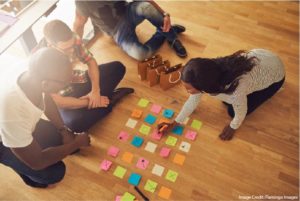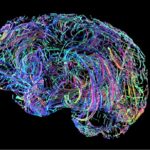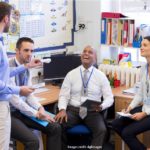I recently spent two hours talking with a group of splendid teachers from Singapore about Mindset Theory.
We talked about “charging” and “retreating.” We discussed “performance goals” and “learning goals.” Of course, “precise praise” merited lots of attention.
At the end of our session, several of their insightful questions focused on systemic change:
How can we help teachers (not just students) develop a growth mindset?
How can we change our grading system to promote GM goals?
What language should we use throughout the school to talk about learning and development?
These questions — and others like them — got me thinking:
We know that psychology and neuroscience research has so much to offer teachers, learners, and education. What systems should be in place to spread the word?
Thinking Big
This question gets complicated quickly.
In the first place, teaching will (almost) always be INDIVIDUAL work taking place within a complex SYSTEM.
In some cases, we want teachers to have lots of freedom — say, to try out teaching strategies suggested by cognitive science.
In other cases, we want teachers to follow their school leaders’ guidance — say, when leaders follow wise psychology research.
How can we get that balance right?
- In England, I believe, a national agency (OFSTED) has evaluation standards that apply to all schools and teachers.
- France is in the process of creating a Council to vet research-based advice to schools and teachers. (LatB speaker Stanislas DeHaene is taking a leading role.)
In the US, of course, local control of schools makes such a system hard to imagine.
What might we do instead? What levers can we push?
I know of one organization — Deans for Impact — that focuses on teacher education.
Their logic makes great sense.
If we can ensure that teacher training programs incorporate cognitive science wisely, we can change the beliefs and practices of a generation of teachers.
Now THAT would — as they say — “move the needle.”
D4I has published a number of immensely useful summaries and reports. This one, for instance, briskly summarizes six core principles of learning: the research behind them, and their classroom implications.
Focus on Schools
Instead of teacher training, we might focus on schools as systems.
Eric Kalenze (blog here) has written a splendid book about creating a school within a school. What The Academy Taught Us doesn’t focus on cognitive science, but it does offer a chalk-in-hand view of building new systems from scratch.
In Kalenze’s telling, a supportive and inspiring principal created just the right combination to allow for meaningful change. (And a school district’s overly rigid policies brought this hopeful experiment to an end.)
I know of several independent schools that are doing exactly this work. The Center for Transformative Teaching and Learning at St. Andrew’s School has been guiding their faculty — and teachers across the country — for over a decade.
The Peter Clark Center for MBE at the Breck School and the Kravis Center for Excellence in Teaching at Loomis Chaffee (the school where I work) both do excellent work in this field.
Perhaps this “Center” model will spread widely throughout schools in the US. If so, these highly local “Deans for Impact”-like initiatives just might — gradually but powerfully — shape the future of teaching.
One By One
At the same time, my own experience suggests the importance of working teacher by teacher.
I attended my first Learning and the Brain conference in 2008. Inspired by the possibilities of combining psychology, neuroscience, and education, I began my own independent exploration.
Although I don’t run a school or supervise teachers, I’m able to spread the word — both as a classroom teacher, and in my work as a consultant (hello Singapore!).
And here’s where Learning and the Brain conferences continue to be so valuable.
The more individual teachers who attend — the more groups of teachers who pool together to share excitement and ideas — the more we can expand networks and create the movement we need.
Perhaps the best way to change the complex system is: one teacher at a time.
I hope you’ll join us in Boston in November!




